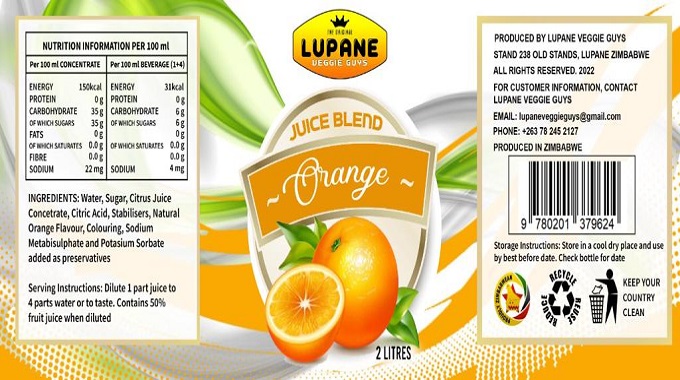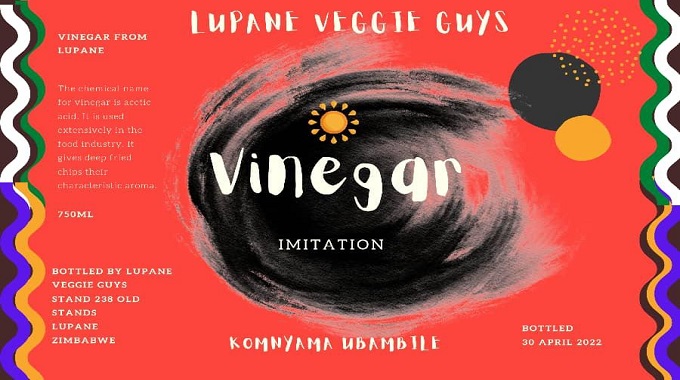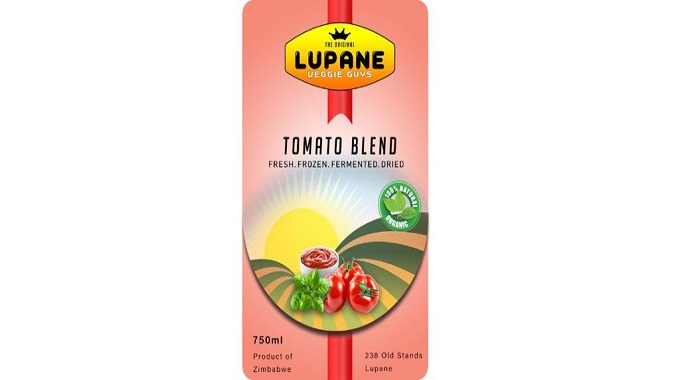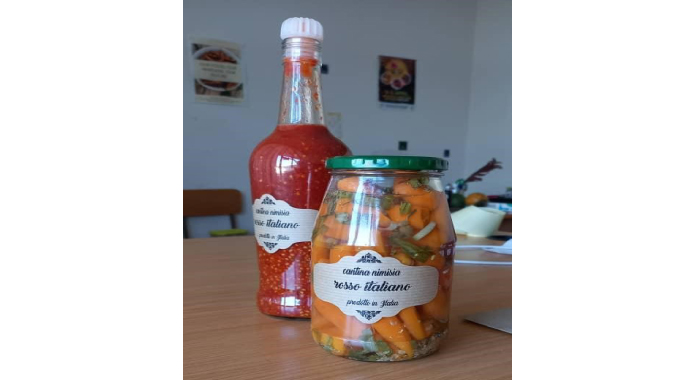Lupane food scientist strikes gold

Peter Matika, Senior Reporter
IT is only the determined ones that manage to achieve their dreams or goals.
One such person is Bulawayo born 38-year-old Mr Makhosi Mahlangu, a university lecturer by profession, who specialises in food sciences.

Mahlangu’s passion has always been to examine traditional African foods in and across Zimbabwe, while also discussing the evolution of these foods through migration patterns.
He has a strong background in food processing, novel food designs, modern culinary trends, sustainable food trends and science acumen in traditional foods.
It is through his dream that he and his partners managed to establish a company, Lupane Veggie Guys, that is making a number of products that are now found in local shops.

Mr Mahlangu said they make chilli and also process polonies and other cold meats, juices and traditional foods.
All their products have a distinct label, “Lupane Veggie Guys” and the address given is in the Matabeleland North capital.
He said there are over 40 different indigenous fruit trees in Zimbabwe and he is in the process of using them to develop jams and juices.
Mr Mahlangu completed his BSc (Hons) in Animal Science and Rangeland Management at Lupane State University and also holds a MSc in Animal Science from the University of Fort Hare in South Africa.

He also went to Italy to study for an MSc in Food and Beverage Innovation and Management with the Università Politecnica delle Marche in Ancona.
Mr Mahlangu said he has worked in countries that include Botswana, South Africa, Zimbabwe, Zambia, Spain and Italy.
His company specialises in processing, modifying African foods so that they can be preserved naturally.

“It has always been a childhood dream for me to teach people about food.
It was just a few years ago, in 2020 to be precise, when I went to Lupane shopping centre to buy chilli and to my surprise it was so expensive.
This is when it all started.
I formulated an idea to develop the best chilli in the country,” said Mahlangu, who went as far as authoring a book on African food in 20202 titled: Our Food, Our Heritage, Our Future.

He said he approached some villagers who were farming chili peppers, where they harvested a few batches of the produce.
“I was realising my childhood dream and nothing was going to stop me.
I wanted to prepare the best chili in the county and different from other brands.
So, I made a few bottles but it didn’t come out the way I had anticipated, probably because I had rushed it and my head was still caught up in the cloud of my dream,” said Mahlangu.

He said while on his mission to make the “ultimate” chilli he accidentally created an ingredient that changed not just his life, but the lives of many villagers in Lupane.
“I was on a mission not just to undo what I had produced, but to create something that would leave the world of foodies salivating in the glee of this product.
In the world of food, we obviously don’t reveal trade secrets so I won’t tell you how I made this chilli.
It was when I was twerking around with ingredients and processing that I and my partners developed this chilli.

I wanted to redesign it from the common chilli.
This one has special preservatives that are all natural.
It has no oil preservatives, just vinegar, brine and spices,” said Mahlangu, stating that the new and final product “ripened” in 2021.
“The aim is to produce a product that will last for months.”

After making chilli, Mr Mahlangu said his food journey was all but a walk in the park.
“We used social media to market the product and we got a serious and overwhelming response,” he said.
Mr Mahlangu however said the demand became so overwhelming that they were failing to meet demand
“This was now a tiff in my dream.
So, while I was attending to a project, where I was training villagers on garlic processing, they informed me of a stock pile of chili, which they didn’t know what to do with.
I then offered to procure it from them.
I got six 50kg bags of chilli and continued producing the chilli,” said Mahlangu.
That was not the only snag in his dream.
“…But we had a huge challenge with packaging.
As you can see our product is in huge 500ml containers.
We want it to come in many sizes.

Through the grace of the lord, we engaged a company that has begun supplying us with different sized containers,” said Mahlangu.
He highlighted that since he discovered the chilli, he had engaged farmers and an NGO in Bubi and Lupane to supply him.
“There is a new product that will hit the market soon.
My colleagues and I call it Iqanda. It’s a boiled egg that can be preserved for six months.
We also process polonies and other cold meats, juices and other traditional foods that you may think are modern, but are in actual fact traditional.
“Our concept is to fuse technology and science to develop the African village and so far, we have managed to link the university and the village.

Our foods are sustainable and environmentally friendly and locally produced,” said Mahlangu.
In realising his dream and passion Mr Mahlangu, after completing his first degree, worked in numerous restaurants in South Africa as a waiter, which helped build his insatiable hunger for food development.
He said he then went to Italy to study in Ancona.
“Parma has always been a food city, a capital of food located in the heart of the Food Valley, in the Emilia-Romagna region, the European region with the highest number of products with the labels Protected Designation of Origin (PDO) and Protected Geographical Indication (PGI).
I don’t want to brag, but I have an intrinsic knowledge of Italian food systems,” he said.
“Food has a geographic location as it is cultural,” said Mahlangu.
He said traditional African foods were widely consumed before colonization.
“The surge in the intake of sugar and oil-rich meals has had a negative impact on the present African generation, which has a high rate of obesity.

To move forward, it is necessary to examine prior food systems.
There has also been a decrease in the nutritional diversity score in modern food trends, despite the fact that our forebears had a variety of grains to pick from, including sorghum, pearl millet, and finger millet,” said Mahlangu.
He said the indigenous people of Zimbabwe consume over 40 different indigenous fruit trees and he was in the process of developing these fruits into jams and juices.
“The indigenous fruit sector is still in its infancy, with just a few fruits of economic value, such as marula, baobab, horned melon, and prickly pear.

As Africans, we should be aware that our consumption of fermented foods like fermented milk, fermented meat and cottage cheese has decreased dramatically.
Fermented foods have a vital function in gut-associated lymphoid tissue (GALT) by favouring the growth of normal bacterial flora over pathogenic species.
An African food revolution is required for Africans to transition from sugary diets to balanced meals that contain all critical elements, including probiotics and prebiotics,” said Mahlangu.











Comments